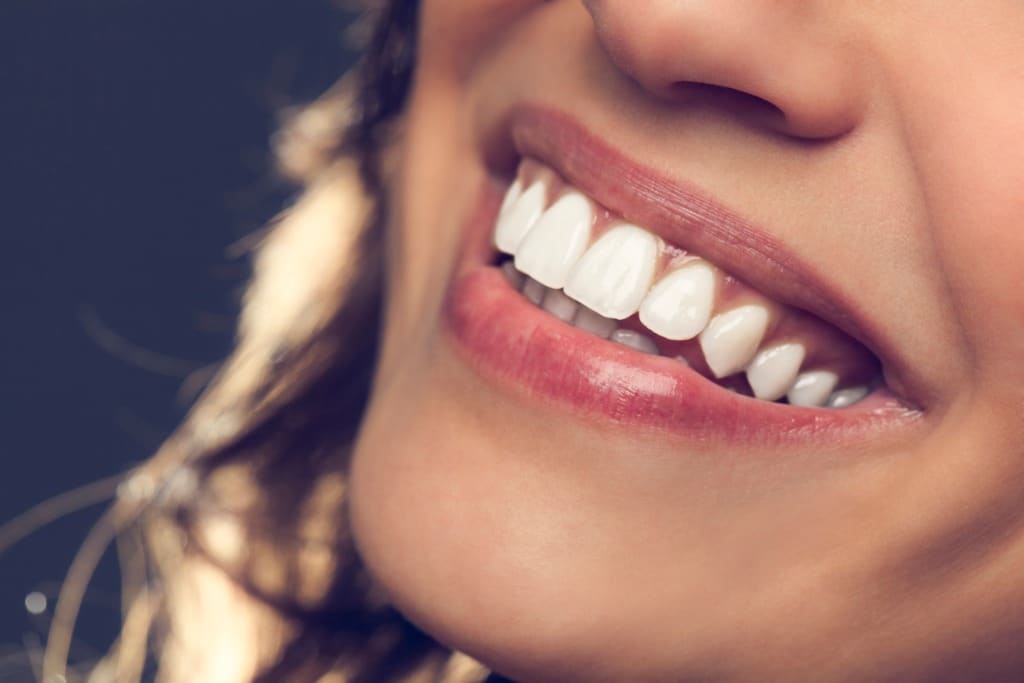Porcelain Veneers
What are Porcelain Veneers?
What are the Benefits of Porcelain Veneers?
Who are the Ideal Candidates for Dental Veneers?
Pretty much anyone could benefit from having porcelain veneers beautify their smile. If you have severe staining in the interior of your teeth from a reaction to tetracycline as a kid or from trauma to a tooth or teeth, porcelain veneers can cover these deep stains. They are also a great way to cover broken or chipped teeth, align crooked teeth, reshape misshapen teeth, or to close gaps between teeth.
The items on that list are all cosmetic issues with the teeth. Porcelain veneers can only be applied to healthy teeth. They don’t correct problems but they merely cover and mask them. So, Dr. Oshetski will need to take care of problems such as decay, deep cracks, or issues with your gum health before he can place veneers.
Disadvantages of Veneers
While porcelain veneers provide a beautiful cover-up of various cosmetic flaws with your teeth, they are only cosmetic. If a tooth has a serious crack or extensive decay, a crown could be a better alternative because it returns strength to the tooth. If a tooth has so much decay that it can’t hold a filling or inlay/onlay, it may need extraction. In this case, a veneer isn’t an option. The tooth will need to be replaced with a dental implant.
Also, it’s important to note that porcelain veneers are a permanent choice. That means the teeth you have covered with veneers will need to always be covered with a veneer. This is because to make room for the veneers on the front side of the teeth, we need to shave off a tiny amount of the enamel. That is permanently gone and those teeth will always need to be covered. That means when your current set of porcelain veneers reaches its lifespan, you’ll need to have another set fabricated and applied.
The Porcelain Veneer Procedure
The placement of porcelain veneers requires three appointments for the following:
1. Diagnosis and Treatment Planning
This initial appointment provides the patient with the opportunity to take an active role in designing and discussing the restorative veneer process. The dentist will discuss the corrective abilities and limitations of this procedure with the patient.
2. Preparation
At the second appointment, the teeth being veneered are lightly buffed to compensate for the added thickness the veneers will create. The teeth are typically reduced by approximately one half of a millimeter. Some veneers require no tooth reduction at all. Next, an impression is taken of the teeth and sent to the lab for the creation of veneers. Temporary veneers can be placed if the patient is uncomfortable with the appearance of the natural teeth. The final veneers are usually ready within a few weeks.
3. Bonding
At the third appointment, the dentist will initially hold the veneers in place on the teeth with water or glycerin to determine whether they are perfect in fit and color. The color of the veneers can still be adjusted by altering the shade of the cement used to adhere them. Once the color is finalized, chemicals are applied to the teeth to optimize the bonding. Dental cement is then applied between the teeth and the veneers, and a special light is used to quickly harden the cement.
Porcelain Veneers Patient Testimonial
“This office is one of a kind. Their approach to patient care and personalized attention is commendable. The staff truly care about patient experience and I have grown fond of them. Dr Oshetski’s skill and expertise is second to none. I am fortunate to have found this office and highly recommend them.”



